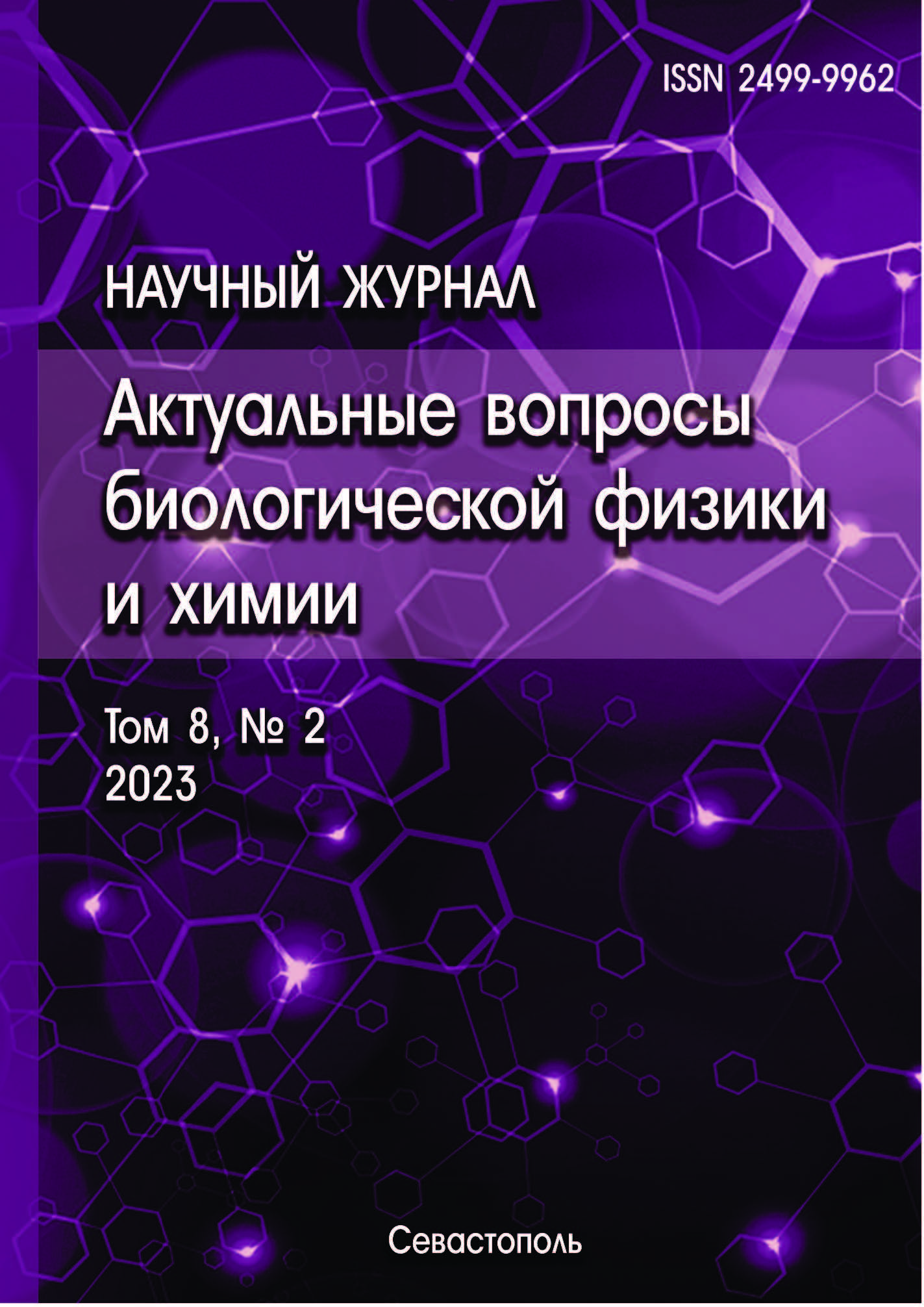Baku, Azerbaijan
Baku, Azerbaijan
. In the present work, the spatial and electronic structures of the lowest energy conformation of the carnosine N1H tautomer in the zwitterionic form, which has a wide range of applications, have been studied. The calculations were performed by the DFT quantum-chemical method based on the B3LYP hybrid functional and the 6-31+G(d,p) basis set in gas, water, and DMSO using the Gaussian 09 and GaussView 6.0.16 programs. The geometry parameters, values of electronic energy, dipole moments, values of partial charges on atoms, HOMO and LUMO energies, descriptors of reactivity of a molecule were calculated and NBO analysis is carried out. The molecular electrostatic potential (MEP) maps and frontier orbitals were visualized. The structural and electronic rearrangements in the molecule and changes in various parameters depending on the dielectric constant of the medium were analyzed. It was found that the influence of the solvent does not play a significant role for this structure, very similar results were obtained for the aqueous medium and DMSO. However, the optimization of the geometry of this carnosine zwitterion tautomer in the gas phase, led to the elimination of the hydrogen atom from the terminal NH3+ group and its addition to the COO- group, actually converting the zwitterionic form into a neutral one.
carnosine zwitterion, structure, global reactivity descriptors, NBO analysis, IR spectra
1. Boldyrev A.A., Aldini G., Derave W. Physiology and pathophysiology of carnosine. Physiol Rev., 2013, vol. 93, pp. 1803-1845, doi:https://doi.org/10.1152/physrev.00039.2012. EDN: https://elibrary.ru/SKWDVP
2. Boldyrev A.A. Problems and prospects of research of the biological role of carnosine. Biokhimiya, 2000, vol. 65, no. 7, pp. 884-890 (In Russ.).
3. Hipkiss A.R. Chapter 3: Carnosine and Its Possible Roles in Nutrition and Health. Advances in Food and Nutrition Research., 2009, vol. 57, pp. 87-154, doi: 10.1016 / S1043-4526 (09) 57003-9. DOI: https://doi.org/10.1016/S1043-4526(09)57003-9; EDN: https://elibrary.ru/MNDZNX
4. Gallant S., Kukley M., Stvolinsky S., Bulygina E., Boldyrev A. Effect of carnosine on rats under experimental brain ischemia. Tohoku J. Exp. Med., 2000, vol. 191, pp. 85-99, doi:https://doi.org/10.1620/tjem.191.85.
5. Prokopieva V.D., Yarygina E.G., Bokhan N.A., Ivanova S.A. Use of carnosine for oxidative stress reduction in different pathologies. Oxid Med Cell Longev., 2016, no. 29390872016, doi:https://doi.org/10.1155/2016/2939087. EDN: https://elibrary.ru/WPLKZL
6. Caruso G., Fresta C.G. et al. Carnosine prevents Aβ-induced oxidative stress and inflammation in microglial cells: A key role of TGF-β1. Cells, 2019, vol. 8, no. 1, pp. 64-86, doi:https://doi.org/10.3390/cells8010064. EDN: https://elibrary.ru/CMFDUZ
7. Wu G. Important roles of dietary taurine, creatine, carnosine, anserine and 4-hydroxyproline in human nutrition and health. Amino Acids, 2020, vol. 52, no. 3, pp. 329-360, doi:https://doi.org/10.1007/s00726-020-02823-6. EDN: https://elibrary.ru/UEHKLA
8. Hipkiss A.R. COVID-19 and Senotherapeutics: Any Role for the Naturally-occurring Dipeptide Carnosine? Aging Dis., 2020, vol.11, no. 4, pp. 737-741, doi:https://doi.org/10.14336/AD.2020.0518. EDN: https://elibrary.ru/SQTDYI
9. Saadah L.M., Deiab G.I.A., Al-Balas Q., Basheti I.A. Carnosine to Combat Novel Coronavirus (nCoV): Molecular Docking and Modeling to Cocrystallized Host Angiotensin-Converting Enzyme 2 (ACE2) and Viral Spike Protein. Molecules, 2020, vol. 25, no. 23, pp. 5605-5619, doi:https://doi.org/10.3390/molecules25235605. EDN: https://elibrary.ru/NQWAQE
10. Diniz F.C., Hipkiss A.R., Ferreira G.C. The Potential Use of Carnosine in Diabetes and Other Afflictions Reported in Long COVID Patients. Front Neurosci., 2022, vol. 16, p. 898735, doi:https://doi.org/10.3389/fnins.2022.898735. EDN: https://elibrary.ru/UVRETI
11. Bennet S., Kaufmann M. et al. Small-molecule metabolome identifies potential therapeutic targets against COVID-19. Sci Rep., 2022, vol. 12, no. 1, p. 10029, doi:https://doi.org/10.1038/s41598-022-14050-y. EDN: https://elibrary.ru/EIYQRG
12. Caruso G. Unveiling the Hidden Therapeutic Potential of Carnosine, a Molecule with a Multimodal Mechanism of Action: A Position Paper. Molecules, 2022, vol. 27, no. 10, p. 3303, doi:https://doi.org/10.3390/molecules27103303. EDN: https://elibrary.ru/AUQZRS
13. Matsukura T., Tanaka H. Applicability of Zinc Complex of L-Carnosine for Medical Use. Biochemistry (Mosc.), 2000, vol. 65, no. 7, pp. 817-823. EDN: https://elibrary.ru/LRQYBZ
14. Jain S., Kim E.S. et al. Comparative cerebroprotective potential of d- and l-carnosine following ischemic stroke in mice. Int. J. Mol. Sci., 2020, vol. 21, no. 9, pp. 3053-3065, doi:https://doi.org/10.3390/ijms21093053. EDN: https://elibrary.ru/MPLLOO
15. Zhao J., Posa D.K. et al. Carnosine protects cardiac myocytes against lipid peroxidation products. Amino Acids, 2019, vol. 51, no. 1, pp. 123-138, doi:https://doi.org/10.1007/s00726-018-2676-6. EDN: https://elibrary.ru/WXWEPV
16. Petersmann A., Müller-Wieland D. et al. Definition, Classification and Diagnosis of Diabetes Mellitus. Exp. Clin. Endocrinol. Diabetes., 2019, vol. 127, iss. S01, pp. S1-S7, doi:https://doi.org/10.1055/a-1018-9078.
17. Riedl E., Pfister F. et al. Carnosine prevents apoptosis of glomerular cells and podocyte loss in STZ diabetic rats. Cell Physiol Biochem., 2011, vol. 28 no 2, pp. 279-288, doi:https://doi.org/10.1159/000331740.
18. Peters V., Zschocke J., Schmitt C.P. Carnosinase, diabetes mellitus and the potential relevance of carnosinase deficiency. J Inherit Metab Dis., 2018, vol. 41, no. 1, pp. 39-47, doi:https://doi.org/10.1007/s10545-017-0099-2. EDN: https://elibrary.ru/YEUTDV
19. Kiliś-Pstrusińska K. Carnosine, carnosinase and kidney diseases. Postepy Hig Med Dosw, 2012, vol. 66, pp. 215-221. DOI: https://doi.org/10.5604/17322693.991600; EDN: https://elibrary.ru/RQSRFV
20. Zhao J., Shi L., Zhang L.-R. Neuroprotective effect of carnosine against salsolinol-induced Parkinson's disease. Exp. Ther. Med., 2017, vol. 14, no. 1, pp. 664-670, doi:https://doi.org/10.3892/etm.2017.4571. EDN: https://elibrary.ru/SVHZNZ
21. Calon F., Cole G. Neuroprotective action of omega-3 polyunsaturated fatty acids against neurodegenerative diseases: evidence from animal studies. Prostaglandins Leukot Essent Fatty Acids, 2007, vol. 77, no. 5-6, pp. 287-293, doi:https://doi.org/10.1016/j.plefa.2007.10.019.
22. Bermúdez M L., Seroogy K.B., Genter M.B. Evaluation of carnosine intervention in the Thy1-aSyn mouse model of Parkinson's disease. Neuroscience, 2019, vol. 411, pp. 270-278, doi:https://doi.org/10.1016/j.neuroscience.2019.05.026. EDN: https://elibrary.ru/EWBZNZ
23. Gaunitz F., Hipkiss A.R. Carnosine and cancer: a perspective. Amino Acids, 2012, vol. 43, no. 1, pp. 135-142, doi:https://doi.org/10.1007/s00726-012-1271-5. EDN: https://elibrary.ru/PIOLBF
24. Oppermann H., Faust H., Yamanishi U., Meixensberger J., Gaunitz F. Carnosine inhibits glioblastoma growth independent from PI3K/Akt/mTOR signaling. PLoS ONE, 2019, vol. 14, no. 6, e0218972, doi:https://doi.org/10.1371/journal.pone.0218972. EDN: https://elibrary.ru/YNQWII
25. Shen Y., Yang J., Li J., Shi X., Ouyang L., Tian Y., Lu J. Carnosine inhibits the proliferation of human gastric cancer SGC-7901 cells through both of the mitochondrial respiration and glycolysis pathways. PLoS ONE, 2014, vol. 9, no. 8, e104632, doi:https://doi.org/10.1371/journal.pone.0104632. EDN: https://elibrary.ru/UUCKED
26. Zhang Z., Miao L., Wu X., Liu G., Peng Y., Xin X., Jiao B., Kong X. Carnosine inhibits the proliferation of human gastric carcinoma cells by retarding Akt/mTOR/p70S6K signaling. J. Cancer., 2014, vol. 5, pp. 382-389. doi:https://doi.org/10.7150/jca.8024.
27. Lee J., Park J.R., Lee H., Jang S., Ryu S.M., Kim H., Kim D., Jang A., Yang S.R. L-carnosine induces apoptosis/cell cycle arrest via suppression of NF-κB/STAT1 pathway in HCT116 colorectal cancer cells. In Vitro Cell Dev Biol Anim., 2018, vol. 54, pp. 505-512, doi:https://doi.org/10.1007/s11626-018-0264-4. EDN: https://elibrary.ru/JSHKEQ
28. Hsieh S.-L., Li J.-H., Dong C.-D., Chen C.-W., Wu C.-C. Carnosine suppresses human colorectal cancer cell proliferation by inducing necroptosis and autophagy and reducing angiogenesis. Oncol Lett., 2022, vol. 23 no. 2, p. 44, doi:https://doi.org/10.3892/ol.2021.13162. EDN: https://elibrary.ru/PICWIA
29. Chuang C.-H., Hu M.-L. L-Carnosine Inhibits Metastasis of SK-Hep-1 Cells by Inhibition of Matrix Metaoproteinase-9 Expression and Induction of an Antimetastatic Gene, nm23-H1. Nutr Cancer, 2008, vol. 60, no. 4, pp. 526-533, doi:https://doi.org/10.1080/01635580801911787. EDN: https://elibrary.ru/XXMQDZ
30. Hsieh S.-L., Hsieh S., Lai P.-Y., Wang J.-J., Li C.-C., Wu C.-C. Carnosine suppresses human colorectal cell migration and intravasation by regulating EMT and MMP expression. Am J Chin Med, 2019, vol. 47, no. 2, pp. 477-494, doi:https://doi.org/10.1142/s0192415x19500241. EDN: https://elibrary.ru/GDINXJ
31. Wu C.-C, Lai P.-Y, Hsieh S., Cheng C.-C., Hsieh S.-L. Suppression of carnosine on adhesion and extravasation of human colorectal cancer cells. Anticancer Res., 2019, vol. 39, no. 11, pp. 6135-6144, doi:https://doi.org/10.21873/anticanres.13821. EDN: https://elibrary.ru/AQWHUC
32. Rybakova Y. S., Boldyrev A. A., Effect of Carnosine and Related Compounds on Proliferation of Cultured Rat Pheochromocytoma PC-12 Cells. Bull. Exp. Biol. Med., 2012, vol. 154, no. 1, pp. 136-140, doi:https://doi.org/10.1007/s10517-012-1894-2. EDN: https://elibrary.ru/RGDNNR
33. Hipkiss A.R., Baye E., de Courten B. Carnosine and the processes of ageing. Maturitas, 2016, vol. 93, pp. 28-33, doi:https://doi.org/10.1016/j.maturitas.2016.06.002. EDN: https://elibrary.ru/XTVXLH
34. Cararo J.H., Streck E.L., Schuck P.F., da C. Ferreira G. Carnosine and Related Peptides: Therapeutic Potential in Age-Related Disorders. Aging and Disease, 2015, vol. 6, no. 5, pp. 369-379, doi:https://doi.org/10.14336/AD.2015.0616. EDN: https://elibrary.ru/WVKTYX
35. Kawahara M., Tanaka K.-I., Kato-Negishi M. Zinc, Carnosine, and Neurodegenerative Diseases. Nutrients, 2018, vol. 10, no. 2, pp. 147-167, doi:https://doi.org/10.3390/nu10020147. EDN: https://elibrary.ru/VEEAIS
36. Shao L., Li Q., Tan Z. L-Carnosine reduces telomere damage and shortening rate in cultured normal fibroblasts. Biochemical and Biophysical Research Communications, 2004, vol. 324, no. 2, pp. 931-936, doi:https://doi.org/10.1016/j.bbrc.2004.09.136. EDN: https://elibrary.ru/LWLUCD
37. Rashid I., van Reyk D.M., Davies M.J. Carnosine and its constituents inhibit glycation of low-density lipoproteins that promotes foam cell formation in vitro. FEBS Lett., 2007, vol. 581 no. 5, pp. 1067-1070, doi:https://doi.org/10.1016/j.febslet.2007.01.082.
38. Caruso G., Fresta C.G. et al. Carnosine Counteracts the Molecular Alterations Aβ Oligomers-Induced in Human Retinal Pigment Epithelial Cells. Molecules, 2023, vo. 28, pp. 3324-3338, doi:https://doi.org/10.3390/molecules28083324. EDN: https://elibrary.ru/ABTTVR
39. Demukhamedova S.D. Theoretical quantum-chemical simulation of the structure and properties of carnosine dipeptide by the DFT method. Russian journal of biological physics and chemistry, 2022, vol. 7, no 2, pp. 241-250 (In Russ.). DOI: https://doi.org/10.29039/rusjbpc.2022.0509; EDN: https://elibrary.ru/JRZORB
40. Akverdieva G.A., Alieva I.N., Hajiyev Z.I., Demukhamedova S.D. Spatial structure of N1H and N3H tautomers of carnosine in zwitterion form. AJP Fizika, 2021, vol. XXVII, no. 2, section: En, 2021, pp. 29-37.
41. Baran E.J. Metal complexes of carmnosine. Biochemistry, 2000, vol. 65, no.7, pp. 789-797.
42. Frisch M.J. et al. Gaussian 09, Revision D.01, Gaussian, Inc., Wallingford CT, 2013.
43. Dennington R., Keith T., Millam J. Gauss View, Version 6.0.16. Shawnee, Kansas: Semichem Inc., Shawnee Mission, 2016.
44. Itoh H., Yamane T., Ashida T. Carnosine (-Alanyl-L-histidine). Acta Cryst., 1977, vol. B33, pp. 2959-2961, doi:https://doi.org/10.1107/S0567740877009972.
45. Koopmans T. Über die Zuordnung von Wellenfunktionen und Eigenwerten zu den Einzelnen Elektronen Eines Atoms. Physica, 1934, vol. 1, no. 1-6, pp. 104-113, doi:https://doi.org/10.1016/s0031-8914(34)90011-2.
46. Weinhold F., Landis C.R. Valency and Bonding: A Natural Bond Orbital Donor-Acceptor Perspective. Cambridge University Press, 2005. DOI: https://doi.org/10.1017/CBO9780511614569; EDN: https://elibrary.ru/SSSATA










